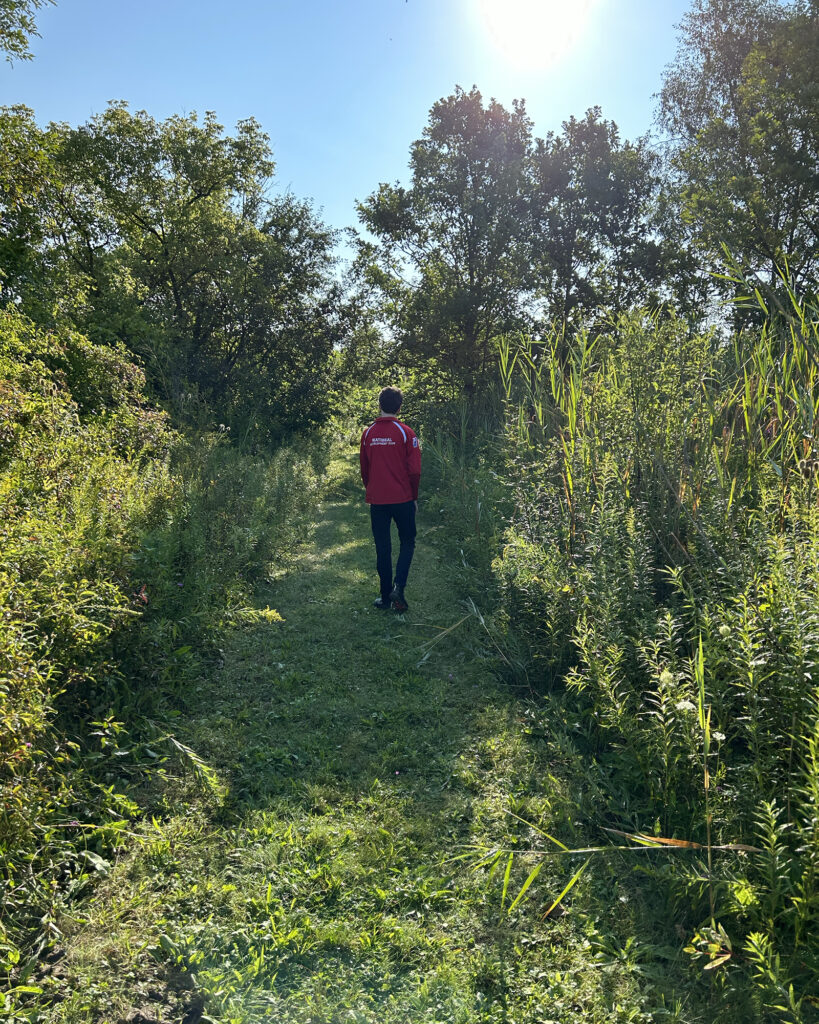The CMP Review — Week of August 28
August 28, 2023
I am reading Christiana’s Journey, or The Pilgrim’s Progress The Second Part, with my Form 1 students this year. I found this lovely illustrated copy that has a painting on every other page. We are already enjoying it and reminiscing about our dear friend Christian.
Do you have any books you or your students are reading this year that you are particularly looking forward to?
@tessakeath
August 29, 2023

When I mentor and advise homeschool parents, I often hear concerns about obedience and attitude. I am told of children who won’t do the lessons they are supposed to enjoy, won’t engage in the activities that are supposed to be fun, won’t do the things they are supposed to do.
When I hear these concerns, I usually turn to the “will, skill, hill” model. Sometimes children don’t do what they’re told because they will not. Sometimes they don’t do what they’re asked because they can’t — they lack a certain skill. And sometimes they want to do the right thing, and they are able to do the right thing, but something in their environment makes it painful or hard.
So often we assume the problem is just with the child’s will. It is much harder as a parent to look in the mirror and examine whether we’ve failed to give our children a skill, or whether we’ve created an insurmountable hill.
Rhoda Harrison studied at the House of Education and then ran her own PNEU school. She became an expert on the education of little children using Charlotte Mason’s ideas. The PNEU even published a booklet by her on the topic.
Rhoda’s first article on the early years was published in 1936. The article means a lot to me because it tells a touching story of a little girl who disobeyed. Some would have punished this little girl for her stubborn will. But Miss Harrison had the courage to take a step back and look in the mirror. She discovered a hill. And that discovery made all the difference.
Read or listen to the many ideas and principles developed and shared by Rhoda Harrison in her vintage 1936 article here.
@artmiddlekauff
August 30, 2023

A humorous anecdote regarding mental math appears in an article in The Parents’ Review. In it, the teacher relays how she “heard of one house where the parents, whose children had become very keen on the subject, positively had to forbid them setting arithmetical problems for their elders, or themselves at meal times; no doubt this was out of a very right and proper consideration for the digestive organs.”*
If you’re interested in learning more about mental math, Sonya Shafer and I sat down to discuss all its benefits in “Mental Math in the Charlotte Mason Math Lesson” — available in video, podcast, or article format here.
@rbaburina
*Pridham, 1897, p. 115
August 31, 2023

A prevalent but unfortunate myth is that the Charlotte Mason method is only for children, and that when they become teens, they must move on to a more robust philosophy of education. Perhaps nowhere is this myth more damaging than in the practice of nature study. It is thus reduced to a kind of playing outside, a precursor to serious science.
As far back as 1935 this myth had already emerged. Rose Amy Pennethorne lamented, “It is sadly true that many people look upon any form of Nature study as ‘something for the babies’ which is outgrown, of course, by noble people in their teens.” Interestingly, she places the blame on an educational reformer who precedes Miss Mason: “Perhaps all the admirable work done by Froebel and other teachers in the junior classes has something to answer for, and there has been too much baby-talk.”
But Charlotte Mason is not the one to answer for this. Her Form V & VI programmes clearly required students in their upper teens to “Keep a Nature Note-Book,” as well as continue with outdoor special studies. There was no baby talk, and nature study was not merely a precursor to, but an enduring companion to, the study of science.
The ones who miss out because of this myth are not only the teens but also the parent-teachers. For so many years I was the guide on nature walks, modeling observation and generating interest. How sweet it would have been to know that a different experience awaited me in later years.
On a recent nature walk, I tagged along and tried to keep up as my son modeled observation for me and generated interest in all the things I was missing. But such moments are only possible if we believe that Charlotte Mason’s ideas are for children, for teens, and for life.
@artmiddlekauff
September 1, 2023

Ever since she was a wee little girl, Serafina liked to wander around town or around the forest with a bag, picking up litter.
Visiting my family at Lake Ontario she did the same thing, wandering the shoreline for an afternoon, picking up whatever she could find.
In some ways, I think it is like a bit of a treasure hunt for her 🕵🏽 as well as helping to steward the creation that she loves so much!
@antonella.f.greco
September 2, 2023

🙋🏻♀️ if you’re a fellow Brontë fan! I relished Jane Eyre this summer for the umpteenth time and, after so many recommendations from fellow CM’ers, am following it up with the audiobook brilliantly narrated by Thandie Newton.
What are you reading or listening to?
@rbaburina
September 3, 2023

“The function of reason,” explains Charlotte Mason in her Short Synopsis, “is to give logical demonstration (a) of mathematical truth, (b) of an initial idea, accepted by the will.” Once the will has accepted an idea, reason rushes in to approve. And so fallacy after fallacy is committed with “the acquittal of that spurious moral sense which supports with its approval all reasonable action” (vol 2, p. 54).
As with several of Mason’s principles, the building blocks of this principle may be found in William Carpenter’s Principles of Moral Physiology. He notes the uncanny ability of reason to advocate for any position, however untrue: “We speak even now of an ‘ingenious argument,’ when we have in view rather the skill with which it is conducted, than the truth it is to support; in fact, our admiration is sometimes most called forth by the Ingenuity which is exerted to sustain a position we regard as untenable” (p. 504).
The Pharisees were confronted by an incontestable miracle: a man born blind could see. “Now we know that God does not hear sinners,” said the healed man. “Since the world began it has been unheard of that anyone opened the eyes of one who was born blind. If this Man were not from God, He could do nothing” (John 9:31–33).
But the Pharisees, like us all, possessed the power of reason, ready to come to their aid. They contrived an argument that was “ingenious.” They exerted their power to sustain a position that was manifestly untenable.
Charlotte Mason’s poem brings the scene to life, with constructed dialog, read with feeling and power by @antonella.f.greco. Find it here.
@artmiddlekauff